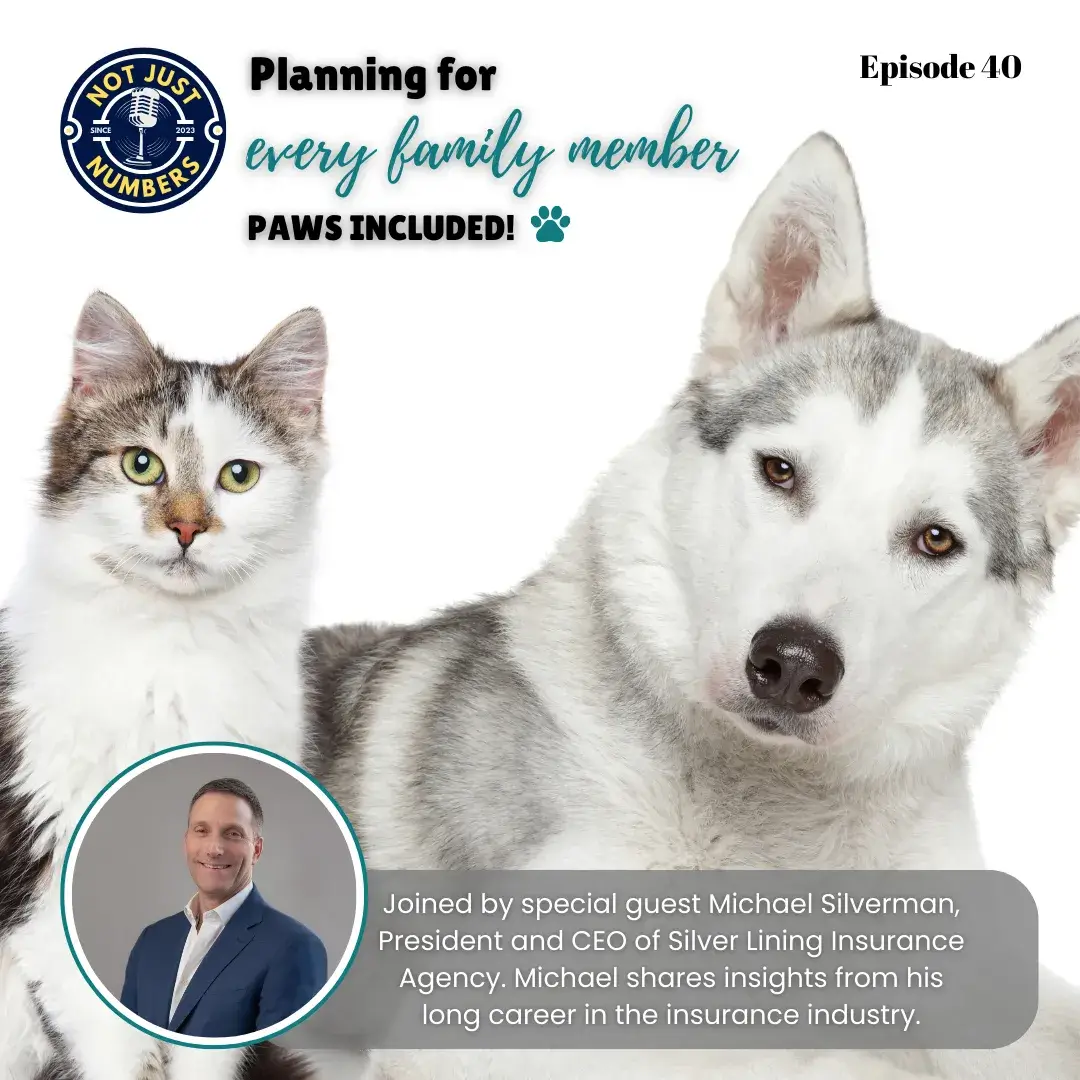Episode 40: Pets in Estate Planning & Insurance Advice from Michael Silverman
Hosts: Madison Demora and Mike Garry
Guest: Michael Silverman, the president and CEO of Silver Lining Insurance Agency
Episode Overview
In this episode of “Not Just Numbers: Honest Conversations with a Financial Advisor and Lawyer,” hosts Madison Demora and Mike Garry delve into two important topics. First, they discuss a Wall Street Journal article about the increasing trend of including pets in estate planning. They explore the benefits, potential risks, and ethical considerations of leaving provisions for pets in wills, as well as the differences between pet directives and pet trusts.
Following this, they interview Michael Silverman, the president and CEO of Silver Lining Insurance Agency. Michael shares his journey in the insurance industry, emphasizing the importance of personalized insurance portfolios and strong relationships with insurance carriers. He provides insights into risk management strategies, the impact of professional certifications, and offers advice for those looking to enter the insurance field. His real-life stories and experiences highlight the significance of tailored insurance solutions and client-focused service.
Listen to Our Podcast On:
Timestamps
- 00:08 – 01:46 – Introduction to episode topic: TITLE
- 01:47 – 03:14 – Changes in Pet Treatment and Estate Planning
- 03:15 – 04:04 – Factors to Consider When Allocating Money for Pets in Wills
- 04:05 – 07:02 – Legal Oversight & Pet Trusts vs. Simpler Pet Directives
- 07:03 – 08:39 – Ethical Considerations of Leaving Large Sums for Pets & Importance of Backup Plans for Pet Guardianship
- 08:46 – 52:07 – Interview with Michael Silverman from Silver Lining Insurance Agency
Connect with our special guest
Follow Us on Social Media
Stay updated with the latest episodes and news by following us on social media:



